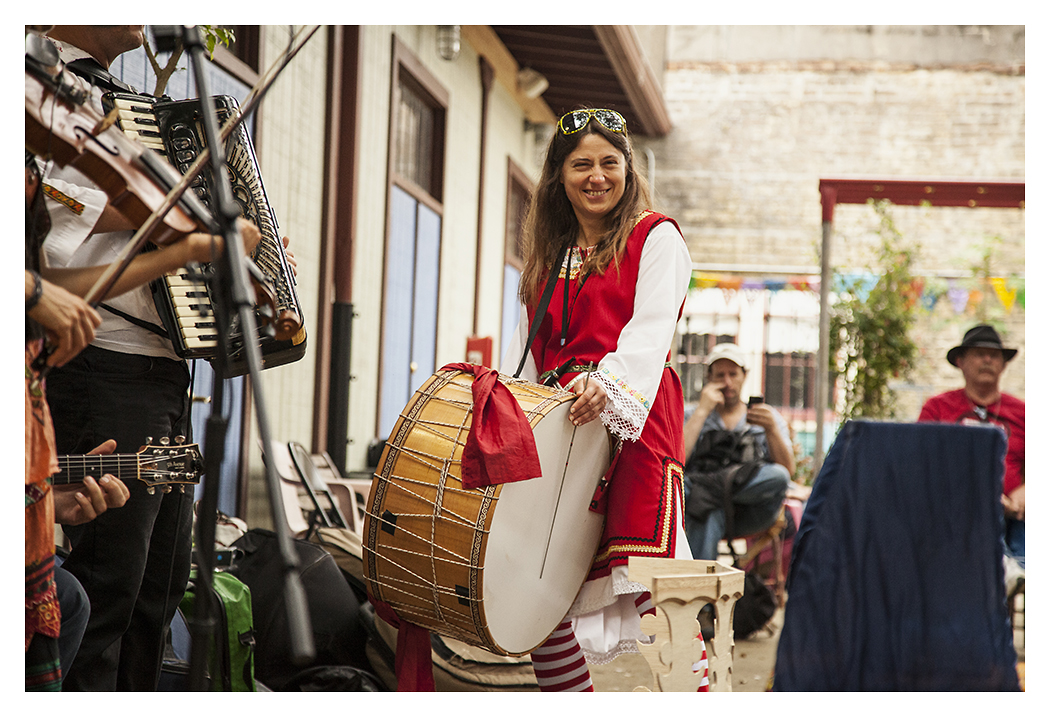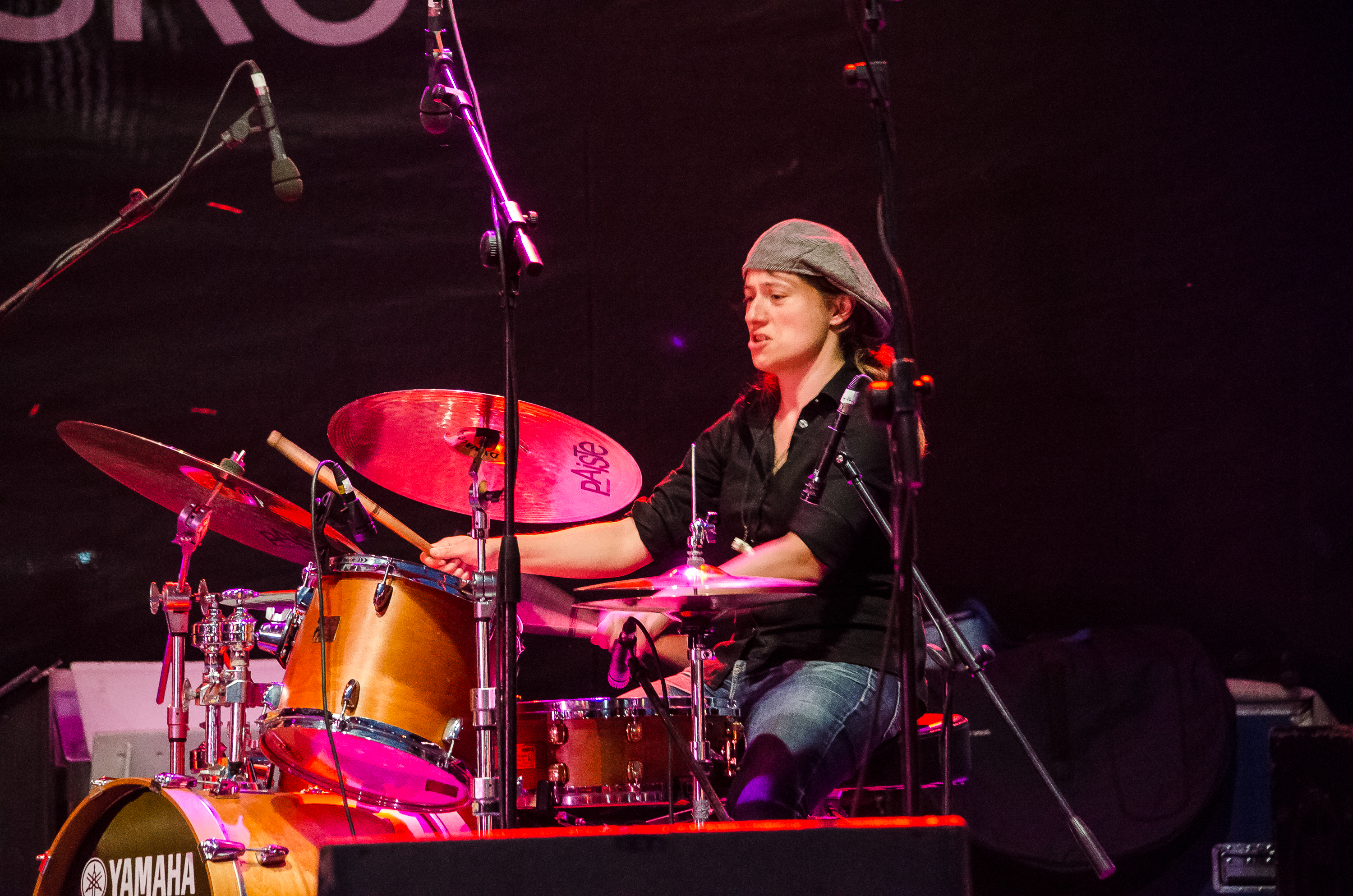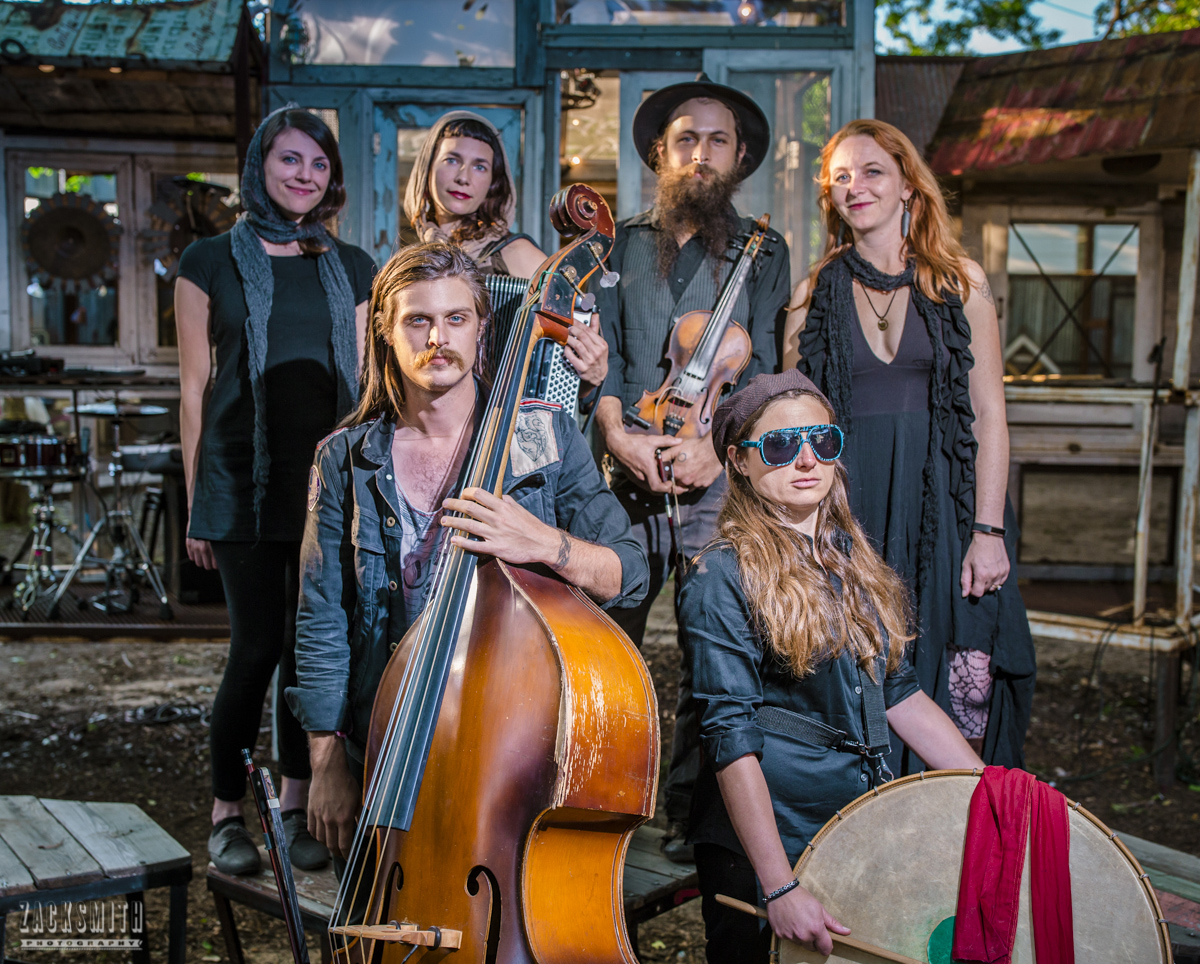The CASSANDRA Project
In ancient Greek mythology Cassandra was cursed by the god of reason and logic, Apollo, to always speak the truth and never be believed. She represents intuition, and her myth reflects western society’s devaluation of divine feminine knowledge.
The CASSANDRA Project is intended as a space for Cassandras in our community to speak their truth. It’s a space for female-identifying myth-busters to speak out and up for women, LGBTQ, and other marginalized peoples. While there are many columns and blogs that focus on women whose success is defined by the patriarchal values of wealth, power and prestige within the system, this column is dedicated to celebrating women for just being, a political act in and of itself in today’s world. It is a space to share the ways in which female-identifying people have maintained their relationship to the divine feminine forces of intuition and creativity outside the status quo, and in spite of male dominated industries and patriarchal systems.
This column is about, for and dedicated to all of the daughters of the witches you didn’t burn.
CASSANDRA #6 : Boyanna Trayanova

Percussionist Boyanna Trayanova. (Photo provided by: Boyanna Trayanova)
Where do you find discrimination toward women or marginalized people suffering from injustices in your life? What do you do?
Everywhere. I’m a female percussionist. You’d think in 2019 we’d have made progress. Nope. There are women in music who are seeing progress; however, this progress has not trickled down to female drummers. Drumming is still a very male dominated field. There is much discrimination in the music world. It’s everywhere I turn. I feel like I would be so much further along in my career if I was a man.
It’s taken me years to come to terms with this. I work really hard all the time. I grew up in New Orleans. The musicians I came up with – and they are all men – are all so much more successful than me and making so much more money than me and get better opportunities. All of them.
It’s taken me years to realize why.
For a long time I blamed myself: Was I not working hard enough? Was I just not good enough? Should I practice more? Hustle more?
So I pushed harder and got no further.
Looking back, early on in my career I had some opportunities that were taken away from me because I was a woman. My peers got those opportunities. Doors were opened for them and doors were closed for me. When I was 21 this bass player recommended me for a touring gig with a prominent New Orleans artist. If I’d have gotten the gig it would have been a huge step for me at 21. This particular artists did not want to tour with me because I was a woman. Why? What was I going to do?
He would work with me, but not tour with me.
So I didn’t get the gig. That was a door slammed in my face and it has been like that since. Discrimination is everywhere.
I’m not sitting around complaining. I’m hustling and pushing and playing and doing my thing. I’ve come to terms that I’m not going to have the same level of success as my male peers. Saying I don’t care about it would be lying, but I’ve decided I’m just going to make beautiful music with people I like.
If you could go back and speak to a younger version of yourself what advice would you give her?
I would tell her to go to school for music.
My parents were Bulgarian scientists. I was told I would study science. I had no choice. My mom taught at Tulane so I had a great education for free. It was the best education no money could buy. But it’s not in music. It’s in computer science. I’m never going to use it.
I have a Masters. Tulane paid me because I did so well in undergrad. I did not want to do grad school but they offered me a paid position and my mom told me I must accept. I made a deal with her that when I graduated I would do what I want. My mom thought there was no way I would do music once I had the Masters, and she was right. I graduated and wasn’t going to do music. I actually started looking for jobs. But I graduated in 2005 and Katrina hit…. and then I had some time to think about things.
Life is short. I decided to pursue music.
What I missed out on was networking with people. I’m self taught. I never learned proper technique. I learned it through trial and error. I went through a lot of self inflicted abuse on my body because I wasn’t using proper technique. I figured it out eventually, but I’d tell younger me to learn the proper technique early on so my body will last longer.

Percussionist Boyanna Trayanova. (Photo provided by: Boyanna Trayanova)
What are queer/feminist topics that you explore in your creative work? How?
I work with many women. This is recent for me. I now am part of a couple bands that are majority women. It’s AWESOME.
It also happened organically, which is really cool. They are not all female, there is a guy or two, but these bands are dominated by women and the majority [of the members are] women. I want more of that in the world.
The process is different. Women want to know that you feel okay about decisions. With these groups there is more talk about feelings. When I first started doing this it felt weird because I wasn’t used to it. In the male bands I play with you get your chart, play, go home.
These are also passion projects so feelings are important. People check in. It’s helpful because if I’m not feeling good then I can talk about it. I don’t have to hold it in.
It creates greater trust.
What was your genesis into playing drums?
I’ve always wanted to.
I was in middle school in North Carolina and we had the opportunity to join the band. You had to take a very easy music proficiency test. I got a really good score and they let me have my first pick of instrument. My first pick was drums and second was trumpet. I got to play my first pick and started playing drums in my middle school band.
I moved to New Orleans right in time for high school. I was suddenly exposed to music everywhere in the city. I remember my first Mardi Gras. I saw the school bands with the huge drum sections and I was floored. There was no going back. I was in. All in.

Blato Zlato at the Music Box. (Photo by: Zack Smith)
You play a drum from Bulgaria, can you talk a bit about that?
It’s called a Tapan. It is a two sided drum. It has drum heads on both sides. One side is tuned low like a bass drum, and it is played with a wooden mallet that looks like a spoon. The other side is tuned really high with a thin head and you play it with a thin stick. In Bulgaria they use a twig, but I use a plastic one because I’m aggressive and shred them.
The twig on the really thin drum head creates the equivalent of a snare drum sound. So you get a bass and snare in one.
I’ve only been playing Tapan since 2013. Some people only know me from my Tapan gigs and are super surprised to see me play a drum set. Which is funny because the set is my main instrument.
In 2013 I took a New Orleans band to Bulgaria to play a jazz gig for a cultural exchange. We were there for a week, and I got to meet and network with Bulgarian musicians who play jazz and folk music. At the time I had no intentions of ever playing Bulgarian music. It had never crossed my mind.
As a kid Bulgarian music was in my ear because Western music was forbidden because of Communism. It was my grandparent’s music. Through some cosmic coincidence this Tapan fell into my lap through this guy whom I had never met, Ivan Velev. I met his mom when I went to Bulgaria that summer in 2013. We had some mutual friends. She came to see me play jazz, and she asked me if I wanted to play her son’s Tapan. I said yes, of course. It was cool, and I had no idea what I was doing. I shot a little video with my iPhone and put it up on Youtube for fun. Ivan saw it, he was living in the US at the time, and he offered for me to take it back to New Orleans with me. I had never even met him!
The even crazier thing is that I had brought this large roll of bubble wrap with me to Bulgaria. For whatever reason there is no bubble wrap in all of Bulgaria, and every time I go to my grandmothers they try and give me fancy things to take home and I can’t because they’ll break. So that year I decided to take this bubble wrap and it was taking up 2/3 of my luggage. Then this thing with the Tapan happens! It’s a very fragile instrument. Not the kind of thing you want to have the airlines throwing around. So I wrapped it in all the bubble wrap. It’s big but very light weight, which is perfect for me. I found two cardboard boxes and cut them up and taped and twined it. It looked like the most suspicious package you’d ever seen. They must have x-rayed it 30 times. But it made it back to New Orleans safe.
So thanks to Ivan I have this drum. Before that I had always been drawn to odd meter music and after that I put two and two together and realized that Bulgarian music has a lot of odd meters. So I started to actively try and play Bulgarian music and start projects here in New Orleans.
What are your Balkan Projects?
One of them is Blato Zlato. It’s a project with three vocalists and four instrumentalists. There are six people in the band and one of the singers plays accordion. It’s accordion, upright bass, violin, drums and three vocalists. That is not a traditional Bulgarian instrumentation. Bulgarian music doesn’t have violin or bass. It does have accordion. The string instrument they use is called a gadulka. It’s kind of like a violin but with sympathetic strings also. No one in New Orleans plays this instrument, so you work with what you have and we approximate traditional sounds with this instrumentation. Much Bulgarian music has polyphonic vocal harmonies, and we explore that.
Bulgarian music usually is instrumental with a singer or just a polyphonic vocal choir. So that is something we do different. We combine the two. We also have our own arrangements and bring this element of improvisation to it that comes from the jazz tradition of New Orleans, which colors it in a unique way.
My other Balkan project is the Backyard Balkan Brass Band. I love horns so much. I play in many different brass bands in town. Horns and drums are a match made in heaven. I love to play music on the street, and it’s perfect for that. The Balkans have a pretty rich tradition of brass bands. Luckily there are enough horn players in town who are willing to explore this tradition with me.
What is your relationship with Bulgaria now? And how has that changed?
I could not go back for 13 years due to visas and immigration status, etc. When you come to the US at 9 years old, those thirteen years are really formative years of your life.
I was 22 when I could go back. I had graduated college, and I did not even want to return. I was so assimilated. We had great reasons for leaving Bulgaria, and my parents informed my opinions. My parents did not want to go back or have anything to do with Bulgaria. They missed their family, and we talked to family on the phone. All the private property that was returned to my family after the fall of Communism we eventually sold. I’m not happy about that now, but my parents could not ever imagine a world in which we would need to have property in Bulgaria for any reason. We sold everything for peanuts. It was not worth anything, and then it was converted into dollars so it was doubly worthless.
Now I pull my hair because I went through a phase after the election where I wanted to leave the country – I’m not entirely over it.
However, it was my mom’s idea to return. She was going to go and gave me the trip as a graduation present. I did not want to at first, but I decided to go. This was 2003, and it was so different from what I remember in 1990. A lot had changed… everything had changed.
I had a great time. I reconnected with childhood friends. These people knew me when I was five. It is so special.
It was important to reconnect with my roots and where I came from and realize why I do things differently than most people because this is how the culture is over there. It was an eye opening experience to have at 22.
Then Katrina hit, and I could not get back again till 2007. I had a gig that took me to Europe, so I stayed a little longer to see the family. Finally I started going back more frequently, and then since 2013 I have been going back every year. My grandmothers were getting older. So I committed to going and spending time with them and started to stay longer. Since the summer is slow in New Orleans I spend time over there and I get to play. I get many western music gigs. Jazz and Blues was forbidden during Communism because it is Western, so some of the old jazz and blues musicians over there have this radical history. They risked their freedom by listening and playing this music. I get to play and tour with some of them when I go back.
 NOLAbeings Multimedia artist Claire Bangser created NOLAbeings as a portrait-based story project that marries...
NOLAbeings Multimedia artist Claire Bangser created NOLAbeings as a portrait-based story project that marries...  Voodoo in New Orleans: Reviving history: New Orleans fortune telling This article takes a deep dive into the history of Voodoo in New Orleans, its hybridization with Catholicism, and its present-day place in the city's culture. The author visits fortune-tellers in the French Quarter, using their guidance as a tool for introspection rather than a deterministic predictor of the future. Through her experiences in New Orleans, the author feels a mystical connection to both the past and the future.
Voodoo in New Orleans: Reviving history: New Orleans fortune telling This article takes a deep dive into the history of Voodoo in New Orleans, its hybridization with Catholicism, and its present-day place in the city's culture. The author visits fortune-tellers in the French Quarter, using their guidance as a tool for introspection rather than a deterministic predictor of the future. Through her experiences in New Orleans, the author feels a mystical connection to both the past and the future. 